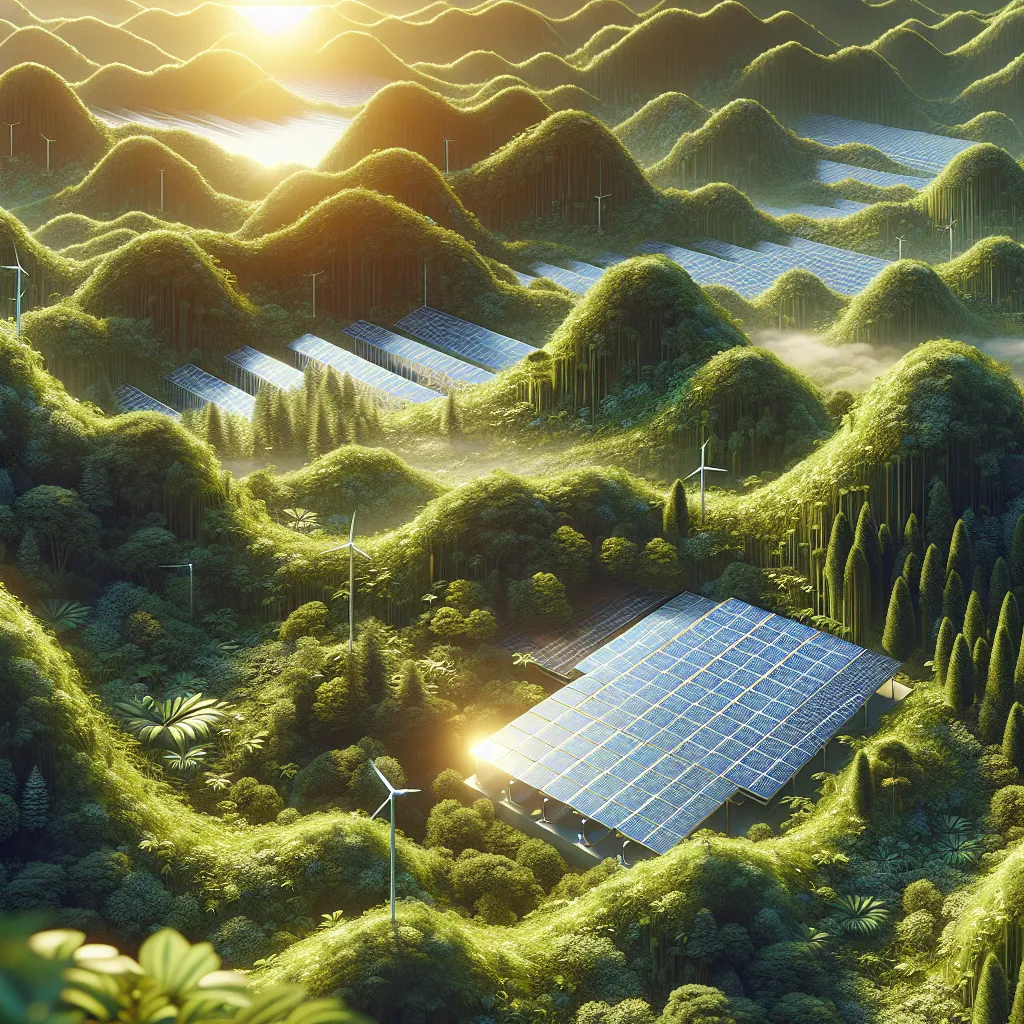Advancements in Solar Power Technology
As the world continues to transition towards more sustainable and renewable energy sources, advancements in solar power technology are playing a pivotal role in shaping the future of energy production. Solar power, a key player in the renewable energy sector, has been experiencing significant technological advancements that are enhancing its efficiency and cost-effectiveness.
One of the most notable advancements in solar power technology is the development of high-efficiency solar panels. Traditional solar panels have relatively low efficiency in converting sunlight into electricity, often hovering around 15-20%. However, the latest generation of solar panels, such as monocrystalline and polycrystalline panels, are achieving efficiencies of over 20%, with some experimental designs reaching even higher levels. This improvement in efficiency means that less surface area is required to generate the same amount of electricity, making solar power more viable for a wider range of applications.
Furthermore, innovations in solar panel design and materials are driving down the production costs. Thin-film solar panels, for example, are lighter, more flexible, and cheaper to produce than traditional silicon-based panels. This opens up new possibilities for integrating solar panels into buildings, vehicles, and consumer electronics, expanding the potential applications of solar power technology.
Another exciting development is the integration of energy storage solutions with solar power systems. The ability to store excess energy generated during the day for use during peak demand or at night addresses one of the major drawbacks of solar power – its intermittent nature. Advancements in battery technologies, such as lithium-ion batteries and flow batteries, are making solar energy more reliable and increasingly independent of the traditional grid infrastructure.
In addition to hardware advancements, digital technologies are also playing a significant role in optimizing the performance of solar power systems. Smart inverters, machine learning algorithms, and Internet of Things (IoT) integration are enabling better monitoring, control, and maintenance of solar installations, leading to improved efficiency and reduced downtime.
Looking ahead, the future of solar power technology holds even more promise. Research and development efforts are focused on next-generation solar cells, such as perovskite solar cells, that have the potential to surpass the efficiency limits of traditional silicon-based cells. Furthermore, the concept of solar-thermal technology, which uses mirrors to concentrate sunlight for heating purposes, is being reimagined with advanced materials and design, opening new avenues for solar power utilization.
In conclusion, the ongoing advancements in solar power technology are driving the widespread adoption of solar energy as a reliable and cost-effective source of renewable power. With improved efficiency, reduced costs, and integration with energy storage systems, solar power is poised to play a central role in the future energy landscape, contributing to a more sustainable and environmentally friendly world.
The Rise of Wind Energy Solutions
One of the most promising aspects of the future of renewable energy technologies is the rise of wind energy solutions. With the increasing focus on sustainable and clean energy sources, wind power has emerged as a key player in the renewable energy landscape. The advancements in wind turbine technology, increased efficiency, and cost-effectiveness have made wind energy an attractive option for meeting the growing energy demands while reducing carbon emissions.
Wind energy solutions utilize the power of the wind to generate electricity, harnessing the kinetic energy through the rotation of turbine blades. The global expansion of wind farms and the development of offshore wind projects indicate the growing momentum of this renewable energy source. The integration of smart grid technologies and energy storage systems further enhance the reliability and stability of wind power, addressing the intermittency challenge often associated with renewable energy sources.
Furthermore, the ongoing research and innovation in wind energy technologies focus on optimizing the design of wind turbines, maximizing energy output, and minimizing environmental impacts. The adoption of predictive maintenance techniques and digital monitoring systems ensures the operational efficiency of wind farms, prolonging the lifespan of equipment and reducing maintenance costs.
In conclusion, the rise of wind energy solutions signifies a promising future for renewable energy technologies, offering a sustainable and impactful alternative to traditional fossil fuel-based power generation. As the wind energy sector continues to evolve, the widespread implementation of wind power is poised to play a pivotal role in the global transition towards a greener and more sustainable energy ecosystem.
Innovations in Sustainable Biofuels
Renewable energy technologies continue to advance at a rapid pace, offering promising solutions to the challenges of climate change and energy security. One area of significant innovation is sustainable biofuels, which have the potential to play a crucial role in the future energy landscape. Sustainable biofuels are derived from organic materials such as agricultural residues, algae, and waste biomass, offering a clean and renewable alternative to traditional fossil fuels.
The development of sustainable biofuels has seen notable advancements in recent years, with a focus on improving production efficiency and environmental sustainability. Innovations in biofuel production processes, such as the use of advanced biorefineries and microalgae cultivation, have significantly enhanced the viability of biofuels as a commercially viable energy source. These advancements have also led to the production of next-generation biofuels that demonstrate improved energy density and compatibility with existing infrastructure.
Furthermore, research and development efforts have been directed towards harnessing novel feedstock sources and optimizing biofuel conversion technologies. This includes the exploration of non-food crops, such as switchgrass and miscanthus, as well as the advancement of thermochemical and biochemical conversion pathways. Such innovations not only contribute to mitigating concerns over food security and land use but also expand the scope of sustainable biofuel production.
Government policies and private investments have played a pivotal role in driving innovation in sustainable biofuels, fostering the scaling up of production facilities and the establishment of supply chains. Incentives for research and commercial deployment have spurred collaborations between academia, industry, and government bodies, leading to the accelerated development and deployment of sustainable biofuel technologies.
As the demand for clean energy intensifies, sustainable biofuels are poised to make significant strides in the renewable energy landscape. With continued innovation and strategic investments, sustainable biofuels have the potential to emerge as a key pillar of the future energy mix, offering a sustainable and low-carbon alternative to conventional transportation fuels.

